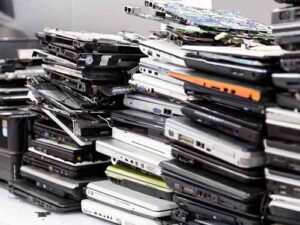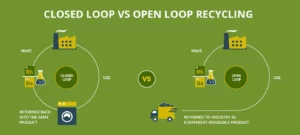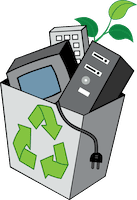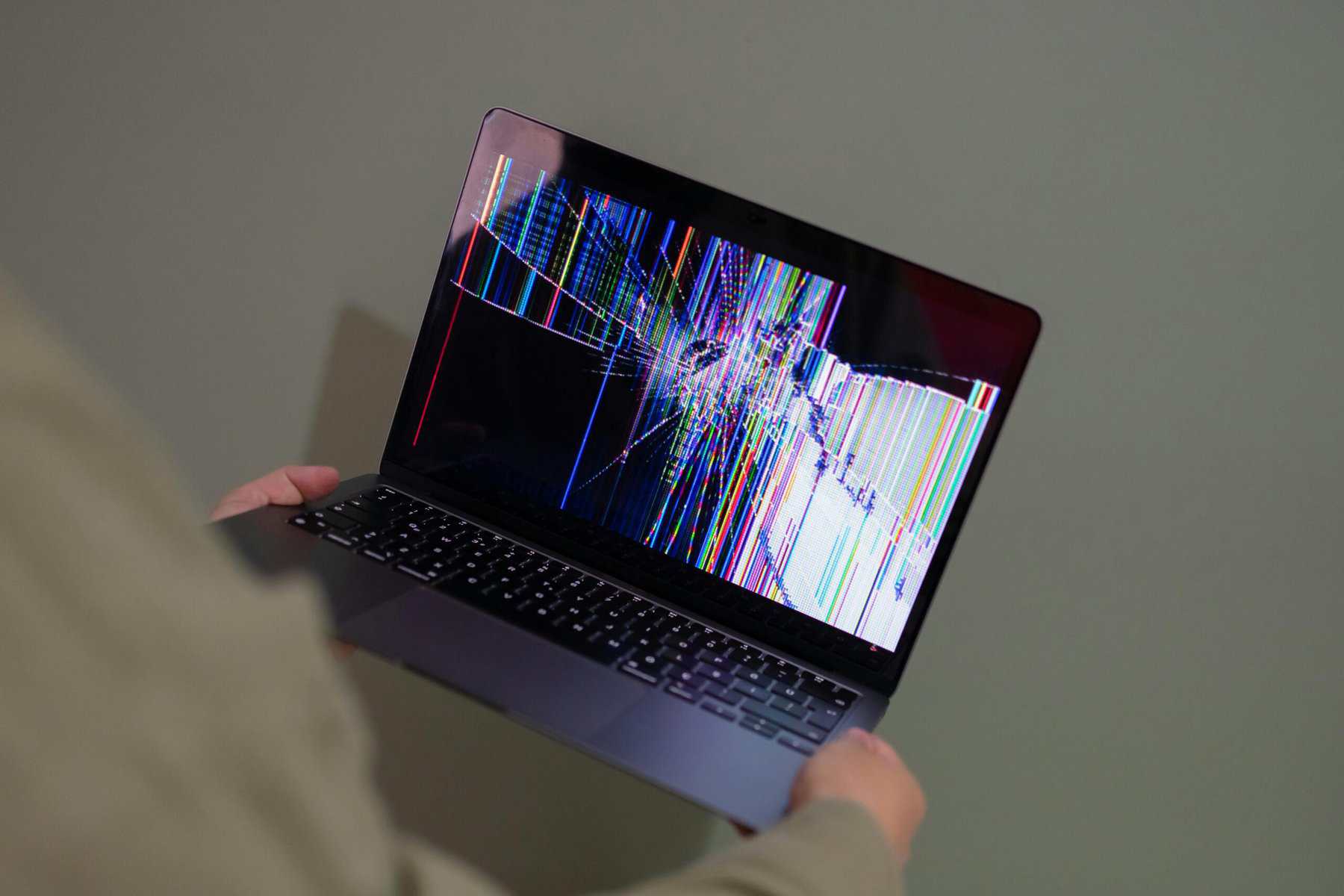By avoiding waste, optimizing the usage of raw materials and products already in circulation, and keeping an ever vigilant eye on conservation, eAsset Solutions believes firmly that everyone can do their part in promoting a circular economy.

What is a Circular Economy?
What are some of the advantages in bringing one about? And how? In today’s blog we’ll answer these questions and explore the concept of a circular economy, the importance of laptop recycling, and the mantle of responsibility happily assumed by all of us at eAsset Solutions in confronting the emergent e-waste crisis.
Understanding the Circular Economy

Circular Economy Pioneers
Representing a paradigm shift in how we approach production, consumption and disposal, the principles of a circular economy were developed by various thinkers and researchers over time. Among them was a leading pioneer in the field named Walter R. Stahel, a Swiss architect and economist, who collaborated in the 1970s with Genevieve Reday-Mulvey in formulating the notion of a ‘closed loop’ or ‘cradle-to-cradle’ economy. Unlike the traditional linear model, which promotes a ‘take-make-waste’ mindset, the circular economy emphasizes the preservation and regeneration of resources, striving to extend the lifespan of products, maximizing their value through recycling and refurbishment, and minimizing waste generation. By embracing these principles, we can reduce our reliance on raw materials, relieve environmental pressures, and create a more sustainable future.
Why Laptop Recycling is so Important

Laptop Recyclilng
The rapid progress of technology has led to an exponential increase in the number of electronic devices, with laptops being among the most prevalent. Unfortunately, this has also led to a concerning increase in e-waste, and laptops in particular contain valuable components and hazardous materials that, if not properly managed, can have detrimental effects on the environment and human health. Laptop recycling plays an incalculable role in diverting e-waste from landfills, facilitating the extraction of valuable resources, and reducing the demand for new raw materials. It presents a sustainable solution to minimize the environmental footprint of the technology we heavily rely on.
The Environmental Impact of E-Waste

Depiction of the Agbogbloshie Landfill
Because many laptops contain harmful substances such as mercury, cadmium, lead and brominated flame retardants, which can contaminate the soil and water if not handled responsibly, e-waste poses significant environmental challenges due to these toxic constituents and improper disposal practices. Furthermore, the energy-intensive manufacturing processes involved in producing electronic devices contribute to carbon emissions and deplete finite resources. Responsible laptop recycling helps address these issues by diverting e-waste from landfills and ensuring the safe management of hazardous materials.
The Role of Laptop Recycling in a Circular Economy
Laptop recycling serves as a vital component of the circular economy. When laptops reach the end of their lifecycle, they can undergo collection and processing through eAsset Solutions. Our innovative approaches employ environmentally friendly practices to dismantle laptops, separate various components such as metals, plastics and circuit boards, and recover valuable materials like silver and gold, copper and aluminum. By reintroducing these materials into the production cycle, the demand for virgin resources is diminished, thereby reducing the environmental impact associated with resource extraction and manufacturing. In addition, refurbished laptops can be sold or donated, extending their useful life and lessening the demand for new devices.
eAsset Solutions: Closing the Loop for Computer Recycling

Closing The Loop
We’re proud of the role we play in closing the loop for computer recycling, laptop recycling, and electronics recycling in general. Our services, which are customized and tailored to meet the needs of our clients, are dedicated to efficiently and safely process electronic devices, including laptops, with the aim of enlarging resource recovery while reducing environmental harm. Through our comprehensive e-waste management practices, refined and developed over the years, eAsset Solutions ensures that laptops are dismantled, sorted and recycled using environmentally friendly methods. By partnering with us, individuals and businesses can actively contribute towards the realization of the circular economy by responsibly recycling their laptops and all outdated electronics devices with eAsset Solutions, and in doing so, help support the sustainable recovery of valuable resources, close the loop, and keep these devices and many other products in circulation.
Advantages of Recycling Electronics with eAsset Solutions
Choosing eAsset Solutions for recycling electronics offers several key advantages. As an R2v3 certified company, we ensure responsible and environmentally-friendly practices, helping you contribute to a sustainable future while demonstrating your commitment, as well as ours, to corporate social responsibility. Our focus on promoting the circular economy drives us everyday to extend the lifespan of electronics through refurbishment, repurposing and recycling, reducing waste and conserving valuable resources.
Additionally, eAsset Solutions brings awareness to the global e-waste crisis, and aligning with us not only allows you to make a positive impact on a global scale but also positions you or your business as a responsible steward of the environment. Quite frankly, it’s a win-win for everyone involved, including our vibrant ecosystem.

LEED Points For Certification
One last point to make: you can benefit from our expertise in helping capture LEED credits for your buildings. Through working with eAsset Solutions, and proper recycling of electronics, you can earn up to 2 points towards your LEED certification. This recognition highlights your commitment to sustainability and serves as a testament to your environmentally responsible practices.
Embracing a Sustainable and Circular Future

Embracing a Circular Economy
In conclusion, the adoption, integration and implementation of a circular economy is critical for tackling the environmental issues related to electronics devices today. Laptop recycling, computer recycling, electronics recycling—all of it plays a vital role in this shift by facilitating the reclamation of valuable resources and curbing the build-up of e-waste. By embracing sustainable approaches and endorsing the principles of the circular economy, we can push ahead together towards a brighter future in which technology and environmental responsibility harmonize like the notes from a piccolo and flute. It is imperative that we take action today to forge a sustainable and circular future for the well-being of future generations, and we ask that everyone join us in the fight for the preservation of our planet.



